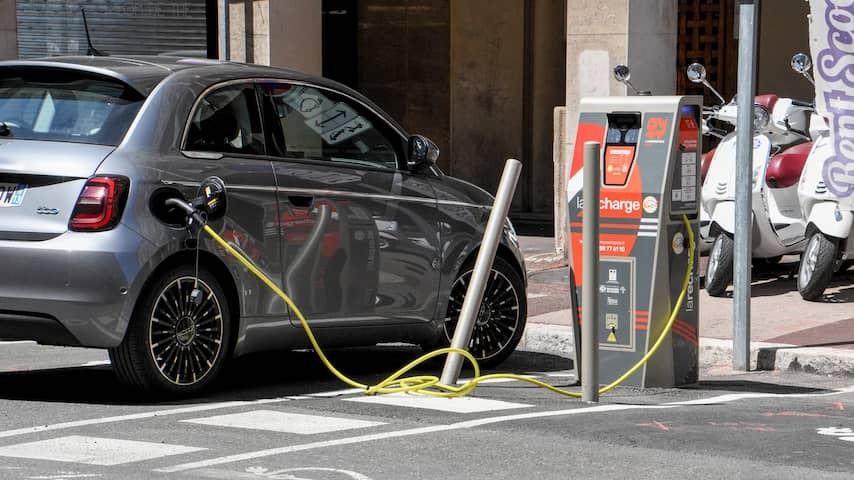
Tanking abroad is a treat due to low gasoline prices, but owners of plug-in cars are not invited. Most surrounding countries have higher charging station prices than the Netherlands. Vacationers are warned of extra charging costs that can run into the hundreds of euros.
The Netherlands has one of the best-covering and one of the cheapest charging networks. Using a public charging station costs 40 to 60 cents per kilowatt hour (kWh) here, and 90 cents if you charge along the highway. Don’t be surprised if you pay that amount in Germany at a regular public charging station.
The ANWB already warned last year about expensive charging stations in vacation countries, but this year the charging rates have become much higher again. For example, Belgium is 19 percent more expensive since last summer and charges an average of 64 cents per kWh, which still makes it one of the cheaper countries. The same applies to Luxembourg, but in France, Germany and Italy the electricity is much more expensive.
Austria takes the crown with almost 1 euro per kWh. Extra costs are also becoming more common. The ANWB sees bills for hundreds of euros from vacationers who had left their car at the charging station. The highest amount for a charging session was 731 euros.
Advisory fee starts immediately at some charging stations
Charging an electric car via a regular charging station takes hours. To prevent ‘charging station squatting’, some managers charge an advisory or blocking fee. “There are different providers per country, so some charging stations immediately charge an advisory fee and others only start after three hours,” says an ANWB spokesperson.
The extra fee is not always clearly indicated on the station, so the spokesperson recommends checking the rates on the manager’s site before plugging in the plug. “In any case, it is good to look up the charging points for your car before the vacation trip, to avoid charging stress.”
The ANWB now warns owners of electric cars via its app if they are going to use a charging station with an advisory fee. The organization does not know how many charging stations per country are involved. However, it has seen many more strikingly expensive charging bills since last year.
The ANWB includes charging sessions that have cost more than 1 euro per kWh. Germany, France and Italy are among the fastest risers. The Netherlands barely increased this year: just over 1 percent of charging sessions are expensive. Blocking fees at Dutch charging stations are also less common.
200 euros for an evening of charging
“It is striking that advisory fees are often used in popular tourist locations,” says the spokesperson. “It can already go wrong when charging the car for an evening. We have spoken to users who had to pay more than 200 euros for this.”
The bills for 500 to 700 euros always involved plug-in cars that had been hanging on the charging station for several days. Real charging station squatters. But most Dutch people charge their car in the evening and disconnect it the next morning.
The ANWB spokesperson does not think that laying an extension cord through the window of your bungalow house to charge your electric car via the socket is a good solution. “That is not appreciated if the electricity is included in the house. Most campsites now have rules for charging your car nearby.”
The only solution is to look carefully at the prices before plugging the plug into the charging station.